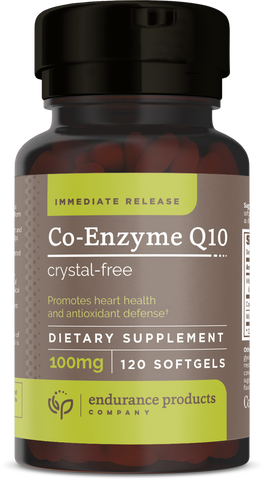Are you taking a statin? Since more than one in four Americans over age 40 are using prescription cholesterol-lowering medication (mostly statins), it’s a good bet either you, or someone you love, is doing just that.
Then you need to read this post…
A growing body of research
According to the Centers for Disease Control, statin drugs and other prescription drugs to lower cholesterol are the most commonly used drugs amount adults 45 and older during 2011 to 2014.
However, a recent meta-analysis1 adds serious support to the growing body of research that statins can deplete your body storage of CoQ10.
For this analysis, the first to assess the effect of statins on blood CoQ10 levels, researchers looked at data from six placebo-controlled trials lasting from 6 to 26 weeks with a combined total of 450 participants. They found that taking statins significantly lowered blood CoQ10 levels.
And this was the case for all four types of statins studied. Blood CoQ10 levels were depleted the most with rosuvastatin (Crestor®) and simvastatin (Zocor®) followed by pravastain (Provochol®) and atorvastin (Lipitor®).
Why you need CoQ10
Coenzyme Q10, or CoQ10 for short, is a fat-soluble vitamin-like substance found in every cell in the body. It’s particularly abundant in the heart, liver, kidney, and pancreas.
CoQ10 is crucial to the health of the body’s mitochondria, the power plant within the cell. Think of CoQ10 as a pilot light that gets everything started, helping the body’s cells convert food into the energy it needs for the cells to grow and stay healthy.
CoQ10 also has antioxidant activity, protecting the body from DNA damage caused by harmful free radicals. Its ability to support heart health is attributed to its role in producing cellular energy and its antioxidant action.
In essence, CoQ10:
- Supports heart health
- Acts as a powerful antioxidant
- Promotes energy production in the heart
- Helps maintain optimal blood vessel function
The total amount of CoQ10 in the adult body is about 2 grams, and about 500 mg of that needs to be replaced every day.2 While your body has the ability to make CoQ10, it declines as we age. Plus, statins inhibit cholesterol production by reducing a compound (mevalonate) that is not only a precursor of cholesterol, but of CoQ10 as well.
Unfortunately, food sources of CoQ10 are limited. Meat, fish, nuts and some oils are the richest sources, but there’s not enough in any of them to significantly boost the levels in your body. Most dairy products, vegetables, fruits and cereals contain even smaller amounts.
Take the sting out of your statin
If you need a statin to help lower cholesterol, we are not attempting to sway you to come off from it. After all, elevated blood cholesterol is a major risk factor for cardiovascular disease and statin therapy has been strongly associated with a reduced risk of atherosclerotic cardiovascular disease.
Instead, you should consider a daily supplement that provides at least 100 to 200 mg of highly bioavailable CoQ10. EP Co-Enzyme Q10 delivers this targeted amount with the enhanced bioavailablity of crystal-free CoQsol-CF®, a highly soluble form of CoQ10 (ubiquinone). Each softgel provides 100 mg of CoQ10 along with high-potency vitamin E.*
The bottom line is that adding CoQ10 to your daily routine is a heart-smart strategy that allows your statin drug to do its cholesterol-lowering job while helping to avoid potential drug-induced depletion of your body stores of CoQ10.
About Endurance Products Company
Endurance Products Company has been a trusted source of quality dietary supplements since 1978. Our sustained-release and extended-release tablets feature a unique vegetable wax matrix that releases nutrients in a slow, steady manner over a period of hours for optimal nutrient absorption and retention.
References
1. Banach M, Serban C, Ursoniu S, et al. Statin therapy and plasma coenzyme Q10 concentrations: a systematic review and meta-analysis of placebo-controlled trials. Pharmacol Res. 2015;99:329-36. PMID: 26192349.
2. Banach M, Serban C, Sahebkar A, et al. Effects of coenzyme Q10 on statin-induced myopathy: a meta-analysis of randomized controlled trials. Mayo Clin Proc. 2015;90(1):24-34. PMID: 25440725.
* These statements have not been evaluated by the Food and Drug Administration. This product is not intended to diagnose, treat, cure or prevent any disease.
All trademarks are the property of their respective owners.

